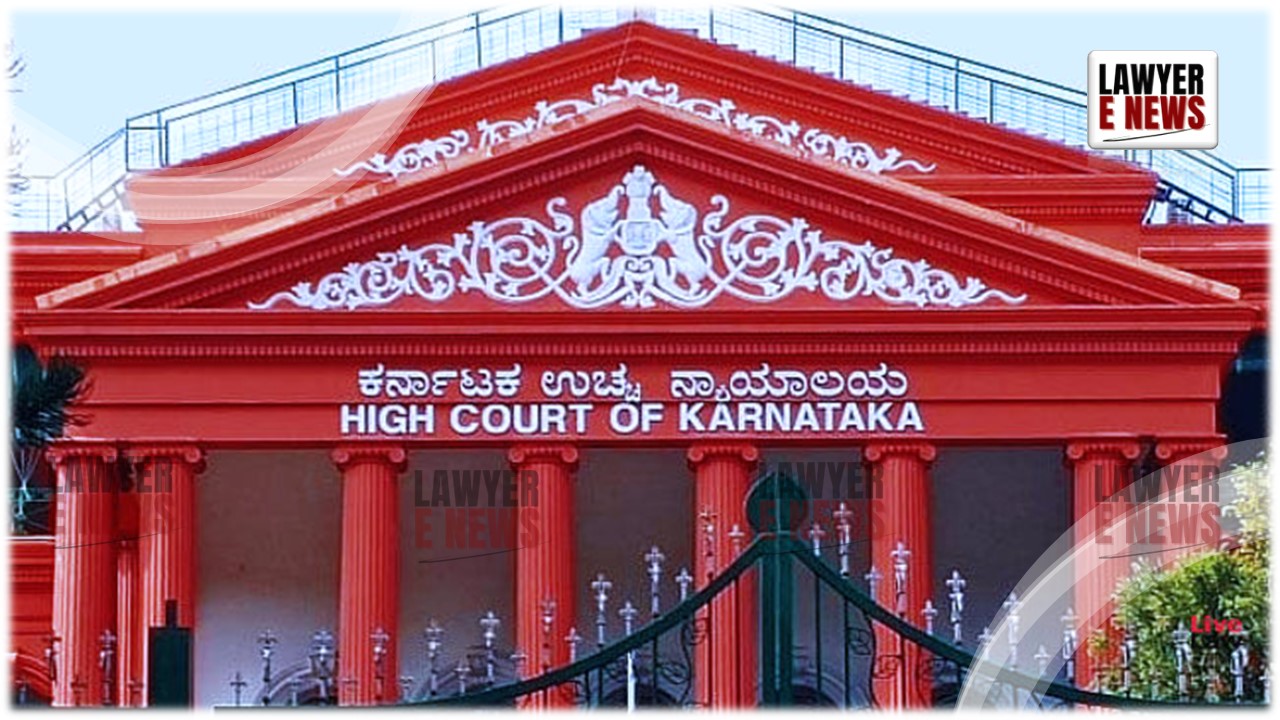-
by Admin
15 February 2026 5:35 AM



The Karnataka High Court has quashed a premature transfer order involving Sri Amaresh, a Karnataka Administrative Service (KAS) officer serving as the Additional Deputy Commissioner and District Magistrate of Bangalore Rural District. The Court found that Amaresh was removed from his position without adherence to the minimum tenure requirements and without the necessary approval from the Chief Minister, as mandated by the Karnataka Government Transfer Guidelines, 2024. In its ruling, the High Court criticized the Service Tribunal's earlier decision to uphold the transfer, highlighting that premature transfers disrupt administrative stability and require compelling reasons to justify such actions.
"Premature Transfer Order Violates Government's Transfer Guidelines and Stability of Administration," Says Karnataka High Court
Amaresh, a KAS officer, was posted as Additional Deputy Commissioner in Bangalore Rural District in March 2023. He had held the position for only 34 days after resuming office following election duty when a transfer order dated July 16, 2024, replaced him with another officer. Amaresh contested this transfer order, arguing that it was premature, unauthorized, and did not comply with the minimum tenure requirements stipulated in the Government Transfer Guidelines, 2024. He filed an application with the Karnataka State Administrative Tribunal (KAT), which dismissed his plea. Aggrieved by the Tribunal's decision, Amaresh approached the Karnataka High Court, seeking relief under Articles 226 and 227 of the Constitution of India.
The Karnataka Government Transfer Guidelines, 2024, specify a minimum tenure for government officers to ensure continuity and stability in administration. Under these guidelines, any transfer within the minimum tenure period requires prior approval from the Chief Minister. Amaresh argued that his transfer was executed without such authorization, making it arbitrary and unlawful.
The High Court found merit in his contention, observing that there was no documented approval for his transfer. The Court emphasized that premature transfers, especially without valid justification, disrupt administrative efficiency and stability, which the guidelines aim to protect.
"Premature transfer without the approval of the Chief Minister violates the established guidelines and undermines administrative stability. The guidelines mandate that officers should serve their minimum tenure unless there is a compelling public interest, which is not evident here," the Court noted [Paras 4-7, 12].
The case involved a dispute over whether Amaresh’s reassignment was a “transfer” or “deployment.” According to the 2024 Transfer Guidelines, a “transfer” refers to moving an officer from one headquarters to another, while “deployment” refers to movement within the same headquarters. Amaresh argued that his reassignment was a transfer as it involved a change in headquarters, and hence the minimum tenure and approval requirements applied.
The Court agreed, stating that the reassignment constituted a “transfer” rather than “deployment.” The office of Additional Deputy Commissioner, Bangalore Rural District, is located in Devanahalli, distinct from Bangalore City. Therefore, the transfer guidelines for tenure and approvals were applicable, and bypassing these requirements was a breach.
"The petitioner’s reassignment clearly qualifies as a transfer involving a change in headquarters. Such a transfer requires adherence to tenure guidelines and appropriate approvals, which were overlooked in this case," the Court held [Paras 8-11].
The High Court exercised its judicial review powers to assess the validity of the Service Tribunal’s order, which had dismissed Amaresh’s plea. It found that the Tribunal had erred in failing to apply the relevant guidelines correctly and disregarded judicial precedents that protect officers from arbitrary transfers.
Citing a previous decision of a Coordinate Bench in Sri S.M. Shiva Kumar v. State of Karnataka, the Court held that the Tribunal was bound to follow established judicial interpretation of transfer guidelines. The Tribunal’s failure to adhere to these precedents justified intervention by the High Court.
"The Service Tribunal’s order disregarded applicable judicial precedents and failed to interpret the transfer guidelines correctly, resulting in a decision prejudicial to the petitioner. This oversight necessitates judicial correction," the Court stated [Paras 4, 7].
The Karnataka High Court quashed both the Service Tribunal’s order and the government’s premature transfer order, directing that Amaresh be reinstated to his position as Additional Deputy Commissioner of Bangalore Rural District. The Court underscored that any deviation from tenure requirements under the Transfer Guidelines must be backed by specific approval and compelling reasons of public interest, neither of which were present in this case.
Writ Petition Allowed: The High Court quashed the Service Tribunal’s order and the July 16, 2024, transfer order.
Reinstatement Ordered: The Court directed the State Government to immediately reinstate Amaresh to his position as Additional Deputy Commissioner, Bangalore Rural District.
No Costs Imposed: The Court did not impose costs on the respondents.
Mandatory Adherence to Transfer Guidelines: The Karnataka Government’s Transfer Guidelines mandate that officers should serve a minimum tenure in their posts, and any deviation requires prior approval from the Chief Minister.
Distinction Between Transfer and Deployment: Transfers involving a change in headquarters must comply with tenure and approval requirements, unlike deployments within the same headquarters.
Judicial Review of Tribunal Decisions: Courts can intervene to correct errors in Tribunal decisions, especially where administrative guidelines and judicial precedents are misapplied.
Date of Decision: October 24, 2024
